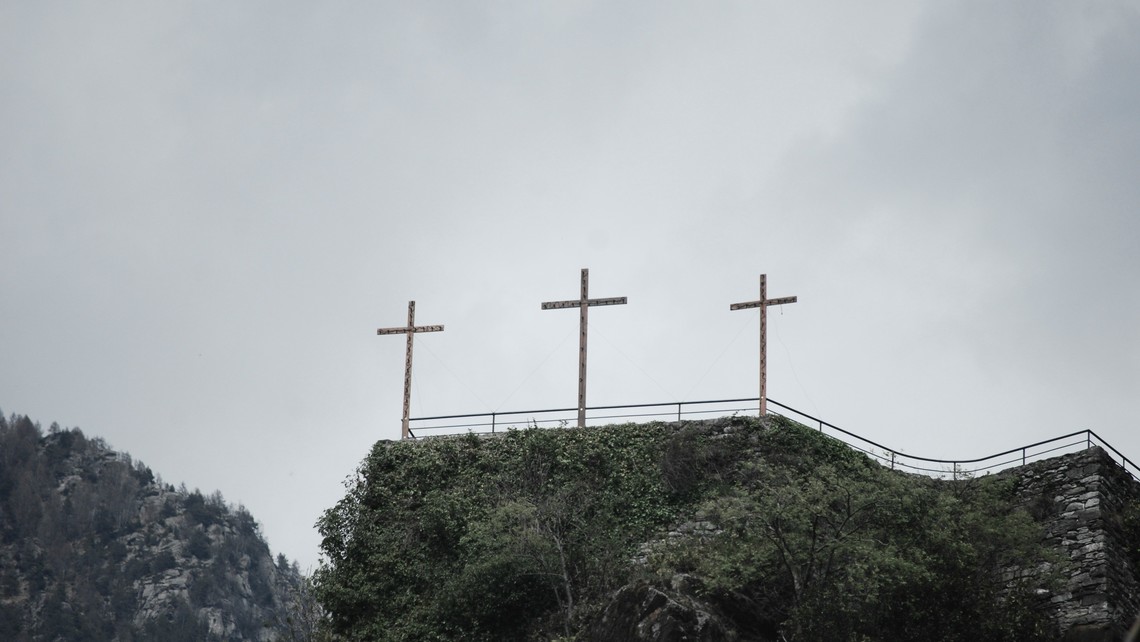
The Catholic Church proposes many spiritual claims that to the common man defy reason and common sense. One such tenet is that the Son of God Jesus Christ came to die for man's sins. This was part of a divine plan after Adam and Eve chose to worship another entity over God. Now, the question is, why would an infinite God who supposedly can do anything choose to sacrifice his son in death born of a virgin woman who herself was born without sin for the salvation of ungrateful souls?
God the Father brought his only son Jesus Christ to pave the way for the resuscitation of man’s relationship with God. Jesus Christ who is both fully human and fully divine relates to man in all things except sin. The apostle to the Gentiles St. Paul explains that for our sake he made him to be sin who knew no sin so that in him we might become the righteousness of God.[1]
It is fair to deduce from the series of salvific tenets proposed by the Church that the principal aim of Jesus’ mission on earth is the salvation of man from sin. If this is the case, the result would be eternal paradise with him in heaven with the caveat that we freely desire this outcome. In the eighth chapter of the Gospel of St. John Jesus reminds the Jews that,
everyone who commits sin is a slave to sin. The slave does not continue in the house forever; the son continues forever. So if the Son makes you free, you will be free indeed. I know that you are descendants of Abraham; yet you seek to kill me because my word finds no place in you. I speak of what I have seen with my Father, and you do what you have heard from your Father.[2]
Jesus’ proclamation was to remind the Jews that anyone who decides to be a slave to sin will shun the opportunity to be with the Son for all eternity. When Jesus entered Jerusalem, it marked the beginning of the way of glory and suffering proposed by God that His son would die for the sins of humanity. The Catechism expresses the drama of Jesus' death as follows,
By embracing in his human heart the Father’s love for men, Jesus “loved them to the end,” for “greater love has no man than this, that a man lay down his life for his friends.” In suffering and death, his humanity became the free and perfect instrument of his divine love which desires the salvation of men. Indeed, out of love for his Father and for men, whom the Father wants to save, Jesus freely accepted his Passion and death: “No one takes [my life] from me, but I lay it down of my own accord.” Hence the sovereign freedom of God’s Son as he went out to his death.[3]
The path Christ sets to free us from the slavery of sin by his death on the cross provides the opportunity to engage our way of the cross and free ourselves from the destructive nature of sin. From his entrance into Jerusalem, the celebration of the Passover feast with the Apostles, his initial suffering in prayer at Gethsemane, his arrest, humiliation, scourging, and finally his way of the cross to his death; Jesus provides a visible path toward salvation.
The Way of the Cross represents Jesus’ path to victory over sin and death and serves as our universal path toward heaven. Because Jesus became man in every way but sin to save man from a path to hell, he offered us a partnership to be his disciples and thus seek all that is above in heaven and not from below echoing the words of St. Paul to the Colossians.[4] Jesus wants us to take up our cross and follow him[5] because the reward is eternal life with God the Father. God’s infinite love is expressed in his willingness to give up his only begotten son in death to save us out of love.[6]
The Way of the Cross requires a penitent's heart and a trustful surrender to the will of God. Adapting a daily examination of conscience, meditation on Sacred Scripture through the practice of Lectio Divina, weekly Adoration, frequent confession, spiritual and corporal works of mercy, forgiving our enemies, and active participation in the sacred liturgy on Sunday are ways we can prepare for our Way of the Cross.
Apart from the cross, there is no other ladder by which we may get to heaven[7]
St. Rose of Lima






